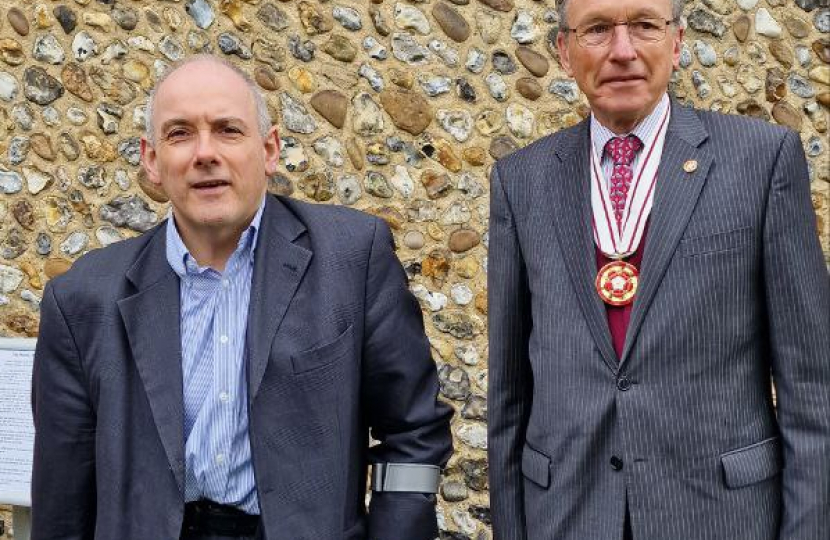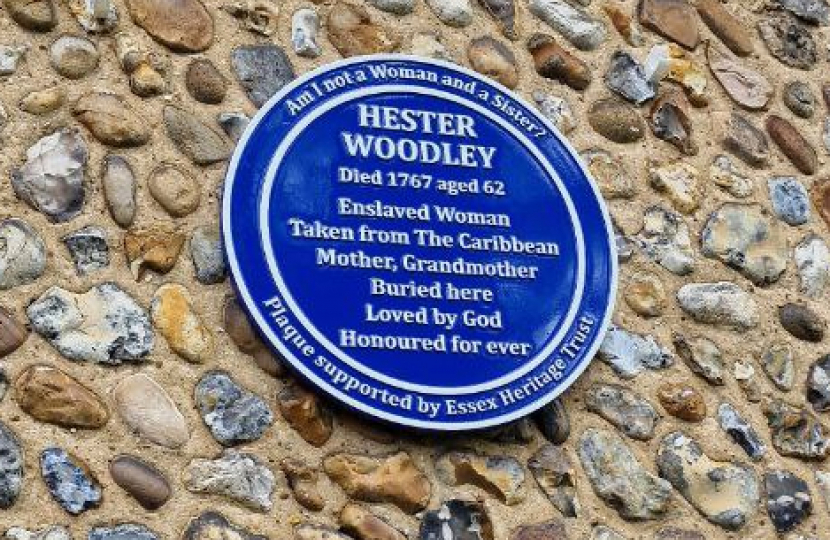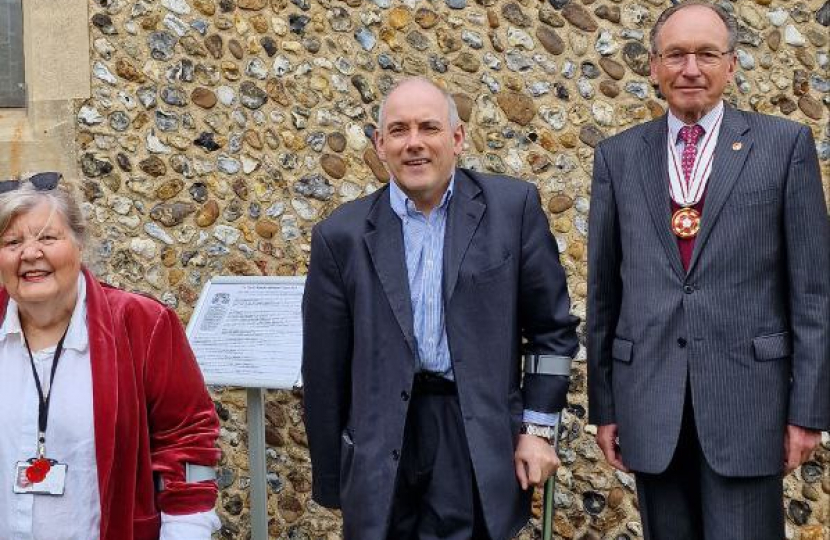Over 250 years ago, Hester Woodley arrived in Britain as a slave to a wealthy family. Leaving her family behind in the Caribbean, Hester served a local land owner, living and working at a mansion on the current site of Princess Alexandra Hospital in Harlow.
Known for her ‘utmost attention and integrity’, Hester spent the final 26 years of her life living and working in Harlow. Upon her death, the family she worked for honoured her life with a headstone to mark her final resting place.
Hester Woodley is believed to have been the first slave in Britian to be formally buried at the end of her life, marking a significant moment in the decline of the British-Caribbean slave trade. Slavery was finally abolished by Parliament in 1807 but Hester’s life and death are a lasting reminder of the hardship so many people faced.
Hester’s legacy lives on today. Hester House in Harlow is named after her and, yesterday, I was honoured to join the Deputy Lieutenant for Essex and Cllr Sue Livings at St Mary’s Church in Little Parndon to unveil a commemorative plaque as a lasting tribute and memorial to Hester. In remembering Hester, we also remember those who were not honoured at the end of their lives.



